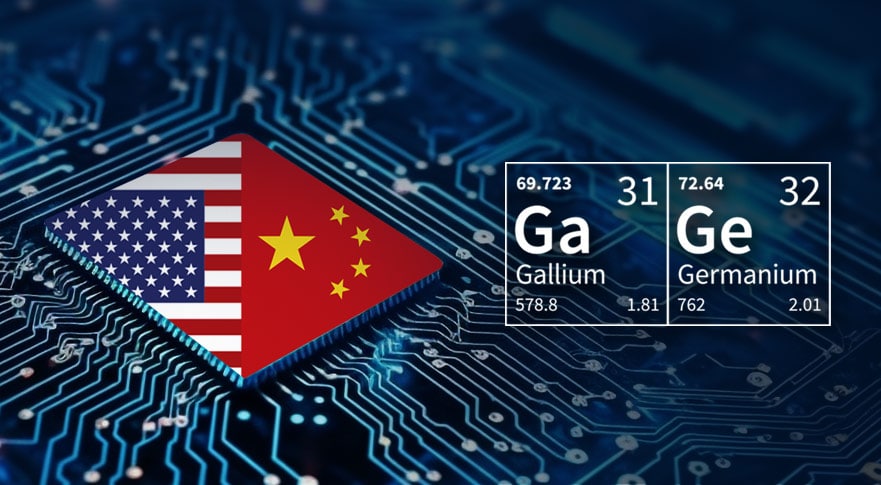On July 3, 2023, the Chinese Ministry of Commerce announced that they would being restricting the export of gallium and germanium. If you aren’t familiar with these metals, the biggest takeaway from this article is that they are considered vital to the creation of some semiconductor chips.
The timing on this restriction is harsh since the United States is trying to reshore semiconductor manufacturing and these restrictions may add a new hurdle to the process. As we rapidly approach the August 1st start date of these restrictions, we are familiarizing ourselves with the impact they will have on the electronics industry and, more importantly, our customers.

China’s Ministry of Commerce and the General Administration of Customs made the announcement for the new export restrictions on July 3, 2023. Here’s the condensed explanation of what they are saying: Starting on August 1, a specific license will be required to export gallium- and germanium-related items. The difficulty to obtain this license is unknown but the assumption is that this requirement will severely limit the flow of related products.
Once the new restrictions go into effect, we can expect that the following gallium-related items will no longer be able to be exported without permission:
• Gallium metal
• Gallium nitride, including but not limited to wafers, powders, scraps, etc.
• Gallium oxide, including but not limited to polycrystalline, single crystal, wafer, epitaxial wafer, powder, scrap, etc.
• Gallium phosphide, including but not limited to polycrystalline, single crystal, wafer, epitaxial wafer, etc.
• Gallium arsenide, including but not limited to polycrystalline, single crystal, wafer, epitaxial wafer, powder, scrap, etc.
• Indium gallium arsenic
• Gallium selenide, including but not limited to polycrystalline, single crystal, wafer, epitaxial wafer, powder, scrap, etc.
• Gallium antimonide, including but not limited to polycrystalline, single crystal, wafer, epitaxial wafer, powder, scrap, etc.
The new restrictions will also impact the export of the following germanium-related items:
• Metal germanium, single substance, including but not limited to crystal, powder, crushed material, etc.
• Zone-melted germanium ingots
• Phosphorus germanium zinc, including but not limited to crystal, powder, crushed material, etc.
• Ge epitaxial growth substrate
• Germanium dioxide
• Germanium tetrachloride
Both gallium and germanium are used in various semiconductor chips. These chips are used in a variety of devices from smartphones and laptops to electric vehicles and defensive technology. The restrictions may have larger implications on global supply chains after they go into effect as it gives China the ability to deny applications and may lead to increased pricing due to reduced supply.

So where does Suntsu Electronics sit in all of this? Thankfully, the export restrictions won’t be affecting our core manufactured products. This means you can still turn to Suntsu for some of the best pricing and lead times in the industry. The larger impact to the electronics market in general remains to be seen.
The reality is that things can change. Thankfully, we keep our finger on the pulse of anything that could impact our industry, meaning we are prepared for market shifts and are able to keep our customers informed on what to expect.
For help with your electronic component sourcing needs, including assistance with crossing parts, contact our team.
Looking for more information or seeking to learn more about our product lines?
Give us a call or request a new quote today!